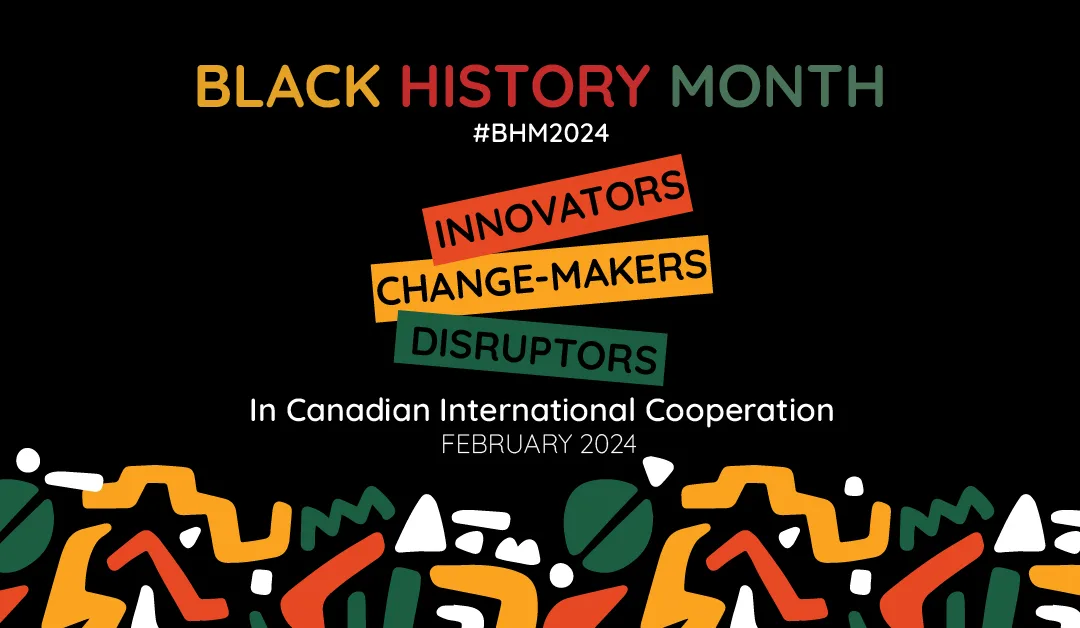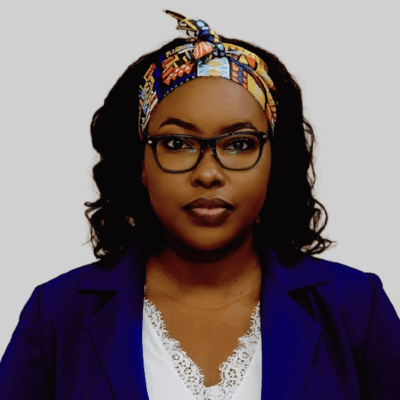Interview with Andy Ouédraogo, Research and Program Officer at Cooperation Canada
1. Why did you decide to work in international cooperation and what have been some career highlights?
Growing up, my parents served as guiding beacons, inspiring a deep-rooted commitment to community service and compassionate leadership. This upbringing instilled in me a profound passion for humanitarianism and development. Yet, the pivotal moment that propelled my career into international cooperation occurred in 2016. During a journey back to Burkina Faso’s capital, my family and I encountered a distressing accident scene—a lack of emergency response left critically injured individuals waiting for an ambulance for two agonizing hours. Having lived in Canada for two years at the time, the stark contrast between Global North and South became glaringly apparent. This experience, coupled with the escalating humanitarian crisis in my homeland, compelled me to redirect my career from Business Management to International Development. Years later and it is still the moral cornerstone in my quest for a world that is not only safer but also marked by fairness and justice.
What have been some career highlights?
Receiving the Henderson Award for International Development in 2020 marked a pivotal career highlight, recognizing my role in the design of a grassroot initiative for humanitarian crisis relief. This project aimed at empowering internally displaced women through vocational training and apprenticeship programs, challenging conventional aid practices and promoting self-reliance through the participation of IDCs in the (formal and informal) economy.
Another defining moment in my career unfolded during the COVID-19 pandemic, when I had the privilege to work for the 76th President of the United Nations General Assembly. During this time of crisis, which starkly exposed racial and ethnic disparities, especially with Black women bearing a disproportionate burden, being part of a historic presidency of hope held particular significance for me as a young Black woman, navigating a professional landscape where representation remains a huge challenge.
Finally, as I reflect on my current role as the lead for the Global Cooperation Futures Initiative at Cooperation Canada, I am proud to be contributing to a more inclusive narrative in global development. This strategic foresight project not only fosters innovation but underscores the importance of diversity in navigating the complexities of international development and collectively carving new paths toward a future we all desire.
3. What experiences have influenced your career as a Black person in the international cooperation sector?
Throughout my career, my experiences as a Black professional have been shaped by both opportunities and challenges. While I’ve been fortunate to engage in initiatives fostering diversity and inclusion, entering predominantly white professional spaces has brought about unique pressures. In these environments, the weight of representing an entire community can be palpable, creating a burden that goes beyond professional responsibilities. There has been at times a fear of inadvertently reinforcing stereotypes and the added pressure of potentially impacting opportunities for others who share my background. Moreover, I’ve encountered instances where assumptions based on my origins influenced expectations about my opinions. Navigating these complexities highlights the ongoing need for genuine inclusivity, where individuals are valued for their unique perspectives rather than burdened by preconceptions tied to their racial or ethnic identity.
4. What are your hopes for the future, and what advice would you give to those wishing to work in international cooperation?
Aspiring for a future marked by increased inclusivity in the international cooperation sector, my hopes involve the dismantling of barriers to entry, beginning with the elimination of unpaid work, such as internships or fellowships. The prevalence of unpaid positions creates a disadvantage, particularly for Black professionals who may not have the financial means to engage in such opportunities, placing them at an inequitable starting point compared to their counterparts. In promoting Equity, Diversity, Inclusion, and Justice, we all have the responsibility to ensure that our initiatives proactively address these systemic barriers without being hindered by perceived funding constraints.
Lastly, for those aspiring to enter the field of international cooperation, my advice would be to anchor themselves in their purpose. While the journey is fulfilling, challenges may arise that provide reasons to reconsider. Holding onto one’s motivation becomes essential amidst the rewarding yet potentially demanding nature of this career path.


